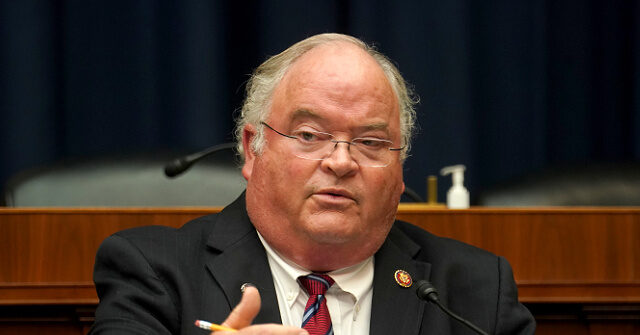In a significant announcement, President-elect Donald Trump revealed his selection of former Congressman Billy Long (R-MO) as the new Commissioner of the Internal Revenue Service (IRS). Trump’s endorsement took place via a post on Truth Social, where he emphasized Long’s extensive background in business management. With a career spanning 32 years in real estate and as a prominent auctioneer, Long’s credentials appear to align well with the leadership demands of the IRS. Trump’s statement highlights Long’s commitment to public service, noting his 12 years in Congress, motivated by a desire to ensure that his constituents had a representative who understood the intricacies of fiscal responsibility, as demonstrated by his assertion that he had “signed the front of a check.”
Moreover, Trump’s announcement stressed that Long’s post-Congress career has been focused on assisting small businesses in navigating the often complex landscape of IRS regulations. By serving as a business and tax adviser, Long has developed a robust understanding of the challenges faced by small enterprises in compliance matters, which is particularly relevant considering the IRS’s pivotal role in regulating tax obligations. Trump’s confidence in Long’s abilities is evident, as he portrays Long not just as a qualified individual but as someone dedicated to empowering taxpayers and small business owners alike. This aspect of Long’s experience is expected to provide valuable insights into reforming the IRS to make it more accessible and user-friendly.
In his remarks, Trump highlighted his long-standing acquaintance with Long, having known him since 2011. Trump’s relationship with Long is presented as one based on mutual respect and a shared work ethic. By stating that Long is “an extremely hard worker and respected by all,” Trump frames Long’s appointment as not only a strategic choice but also one grounded in personal trust and reliability. This character endorsement is intended to assuage concerns regarding the challenging role of an IRS commissioner, suggesting that Long’s leadership will positively impact both the agency and its interactions with taxpayers.
The former congressman is portrayed as a “people person,” a quality that Trump believes will resonate well with taxpayers as well as IRS employees. By emphasizing Long’s rapport across the political spectrum, Trump suggests that Long’s tenure as commissioner will foster a more collaborative and respectful environment within the agency. This could be particularly beneficial in bridging gaps between IRS initiatives and public perception, and addressing criticisms that have historically surrounded the agency. Such an approach may be key to transforming the IRS’s image, as Long’s approachable nature could enhance taxpayer engagement and compliance.
Trump’s narrative suggests that Long’s business acumen and experience with legislation will allow him to bring innovative solutions to the challenges the IRS faces. It is anticipated that Long’s focus on the needs of small businesses will foster a more supportive regulatory framework that encourages entrepreneurship. By aligning IRS policies with the realities of business operations, Long’s leadership could lead to reformative changes that not only simplify tax compliance but also stimulate economic growth.
Ultimately, the appointment of Billy Long as IRS Commissioner symbolizes a shift towards leadership that prioritizes understanding and advocating for taxpayers and small businesses. Trump’s confidence in Long reflects a broader strategy to address IRS inefficiencies and improve taxpayer relations. By blending legislative experience with practical business insights, Long’s tenure may pave the way for a more responsive and accountable IRS that better serves the American public while fostering economic prosperity. As this new era unfolds, stakeholders will be observing closely how Long’s initiatives translate into tangible changes within the agency and its interactions with citizens.

